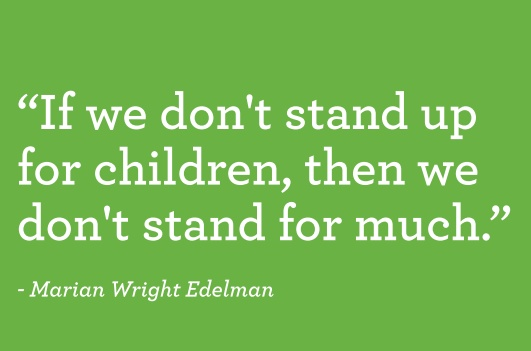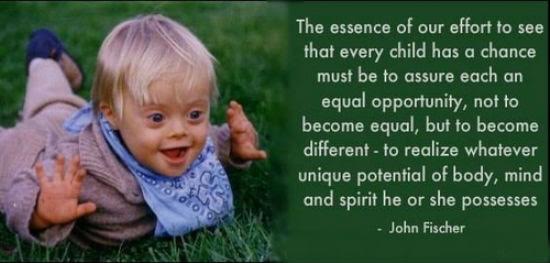By Jill Telford and Berna Artis
Several years ago, a mom walked into my office with her twin boys who were barely a year old at the time. She looked fragile, slim with a smile on her face trying to cover a sadness that was sitting deep inside, most likely for a long time. She was in her early twenties. She said she wanted to enroll her boys to my program. There was an urgent sense of wanting to help this family that covered my mind and heart. After completing her enrollment process, I conversed with her. I asked her what she needed from the program, how could I support her and anything else that she wanted me to know. What I learned from our conversation was not unique but unsettling. A single mom who was abused by her mother’s boyfriend, diagnosed with bipolar disorder, out of high school trying to find a job and living in an apartment with roaches and surrounded by drug users. I was unsure of how to handle this young mother…what to say to her, how to say it… I admired how she felt comfortable and opened up to me, sharing that her mother reported her to the police because she was gay and using drugs. They needed to take the boys away from her. By the time she was done talking, she was in tears apologizing and I was sitting across from her trying to hold my tears in with a big knot in my throat.

A couple of weeks later, both of the boys were having medical issues. I was supporting this mom by asking questions gently and ensuring she trusted that my goal was just to help her become strong and able for her children. She was going to the hospital every week and they were giving her the run around. I was coaching her to ask questions to the pediatrician after figuring out she did not know what to ask and she entrusted doctors as they were educated and they were “doctors” in her mind. We were spending eight hours with these boys and our observations were clear: they were not getting the care they needed!
I asked the mom to call the doctor’s office and I would put the call on speaker and I would speak. She was fine with it, in fact appreciated me taking the time to help her. I realized that all this time, a registered nurse was attending her children not an actual pediatrician. With all due respect to registered nurses, these boys needed a doctor not to mention a specialist. The RN was extremely rude on the phone trying to belittle the mom saying she did not know what she was doing with her children. She went on speaking in that “I know every thing because I am the RN” voice until I pushed back by saying I would write a letter to the hospital and I would ensure to follow up until these two children received the care they needed. When I was finished, I had the contact information on my notepad. In a few weeks, both children went through tests, one was diagnosed with autism and the other had severe gastrointestinal issues that were being addressed by specialists. The journey was not over for this family.

Mom was extremely upset and emotional about her twin boys’ situation. I made a referral, which resulted in ABA therapy, and wrap around service that included home visits and support for mom. This was incredible. Mom stopped by my office every single morning praying for me and thanking me because I cared for her, her family, that I did not treat her differently because she had a mental illness and she was gay. As we thought things got better, we had another situation. One of the boys was working with the ABA therapist three times a week. The first one was fine but the second one they assigned him was impatient, forceful and not nurturing. I could not bear seeing this picture one more time. The second time I observed her work, I called her supervisor and shared my observations and concern. The same day mom came to my office and said that the home visitor was talking down to her and that she felt very uncomfortable. I followed up with the home visitor who was also one of the supervisors in her agency. She told me that there were roaches on the walls and that the TV was in the same room where children sleep. She added that mom needed to move out of that house if she needed her children to get better especially since one of the boys had asthma.

The interesting part in this conversation was her tone. She was sharing these things with me with disgust. I wanted to say, “Yes genius, this family is on WIC, mom is in training to get a job and this is the apartment the housing assistance is paying for, and yes there is a long waitlist for a better place”. Well, I did not because I knew I had to keep it professional. I said thank you and asked for an in person meeting with mom and me in my office. Within that week, we met. I asked one of my colleagues who is a clinical social worker to sit in for this meeting. I wanted to make sure I was not missing anything because I was not a social worker and I had to cover all my grounds for this mom. I had to advocate! The owner of the agency, home visitor, mom, my colleague and I met. I saw exactly what mom was telling me…
- You have roaches in your home, it is not safe for your children
- They need to eat better food because they need better nutrition
- You cannot let them sleep in the same room with a TV
- You need to spend more time with them to bond
- If you had a job …
After the last part, it was a blur to me. Mom was crying and they were still stating all the negative facts to her as if no one was aware and concerned. I ended the meeting, called the referral agency, shared our concerns and what took place. They followed up with us in person and ended their contract with that particular therapy agency. It took a little bit but it happened. This is only one family I am speaking about. Mom kept in contact with me for a while even after children transitioned to public school. I heard things are getting better for them. This is an example how we all can advocate for children and families. It may sound like social work but it is an extension and continuation of what we do: support children, educate and empower families, enable them to help their families. This is the only way we can make a difference. One family at a time.

Like Berna, I vividly recall a set of experiences that define first who I am and who I am in the process of becoming and second the how and the why I help others. It’s never the evil people that are the most at fault in times of crises and chaos, it’s the people who never speak up and fight for what’s right.
At some point, everyone needs help. How can we teach children Blooms Taxonomy if Maslow’s needs aren’t met? It’s as simple as that. I grew up in Scranton in Townhouse projects and although our family didn’t have everything we had each other and that was more than enough for me. Understanding this and where I come from: my roots so to speak, I get life. I get that it’s not about the money or the material things but the time, loyalty and authentic relationships. Throw in music, food and conversation and you have all you need.
When I moved to Washington, DC I walked into a small box sardine like apartment. I lived in unit 4. Koolaid stained carpet. Roaches. A defective heater that was tagged with warnings of don’t use. I cried. Hearing gun shots my first night, coupled by pattering of sneakers on concrete I thought: what did I get myself into? The next day held my answer. I showed up to my neighborhood and found a child locked out. I let my dog Courage outside and the three of us became friends. Everyday “Johnny” would come and ask to play with Courage. Eventually, we put up a basketball hoop to which a neighbor complained and threatened to call the police on us. The children absolutely looked forward to playing everyday. We couldn’t take that hoop down.

My next door fiftyish year old neighbor who I learned could not read during a Home Depot run as we were trying to find water resistant liners, when hearing the name police immediately freaked out. I calmed him down and said I will call the police myself to ensure the hoop was allowed in our alley. And, it was. Then I walked over to the other neighbor’s house to talk and negotiate the hoop. My neighbor said that the hoop was going to destroy her quality of life as she was retired. I responded with “What about the children’s quality of life?” Together we created some rules of the hoop. Some were that children had to stop playing on it when the streetlights came on, absolutely no drugs and treat each other kindly.
This not only gave children something to do but created a community of support. It was by far not perfect but nowhere is. Every neighbor-hood has its problems but the question is, is what kind of neighbor do you want to be? We can all be advocates easily and it starts by being a kind and understanding neighbor. Often, I think of how I’d like to be treated…then I act accordingly.
Yes, it is a lot of work but didn’t we all choose to do this? Belittling, criticizing, judging, isolating, pushing down and away are not the ways we will gain these individuals and show them how life can be better. It is by taking that five extra minutes to make a phone call, ten extra minutes to look someone in the eye and truly listen, speaking up for them and standing by them until we try every way and use every power we have. If we do not, who will? Never underestimate how you can change a person’s life and in return how they change yours.
















